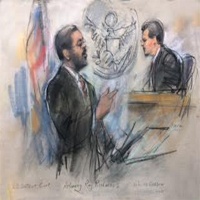Warren Felony Lawyer, Michigan
Sponsored Law Firm
-
 x
x

Click For More Info:
-
Richards & Associates, PLLC
200 East Big Beaver Road Troy, MI 48083» view mapCriminal Defense Accomplished Criminal Defense Attorney
If you face criminal charges, you deserve an experienced defense lawyer who has a reputation for winning the tough cases.
800-844-5250
Andrew Hubbs
Felony, Misdemeanor, White Collar Crime, Criminal
Status: In Good Standing *Status is reviewed annually. For latest information visit here
FREE CONSULTATION
CONTACTScott Christopher Kozak
Traffic, Domestic Violence & Neglect, Felony, Criminal
Status: In Good Standing *Status is reviewed annually. For latest information visit here Licensed: 23 Years
 Ray Richards Troy, MI
Ray Richards Troy, MI AboutRichards & Associates, PLLC
AboutRichards & Associates, PLLC Practice AreasSpecializations
Practice AreasSpecializations